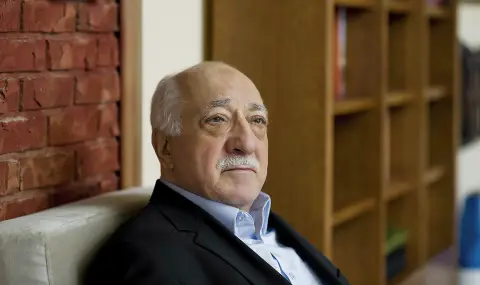Turkish Islamic preacher has died Fethullah Gülen, who had been living in the United States for years, Reuters reported, referring to the Turkish television NTV.
Gülen died at the age of 83.
Gülen was initially an ally of the current president, Recep Tayyip Erdogan, but their relationship subsequently fell apart.
After the coup attempt in Turkey in July 2016, the government accused Gulen and his supporters of organizing the coup, and the preacher's movement was designated by Turkish authorities as the “Fethullahist terrorist organization” (FETO). Tens of thousands of Turks were arrested on charges of links to the Gulenist movement.
The Hercule website, which publishes Gülen's sermons, reported on the “X“ platform that he died on Sunday in a US hospital.
According to the followers of Fethullah Gülen, his movement, known as “Hizmet”, i.e. “service“ in Turkish, seeks to spread a moderate form of Islam that promotes Western-style education, free markets and interfaith communication, Reuters writes.
After the 2016 coup attempt, the movement was systematically dismantled in Turkey and its influence declined internationally.
Known among his followers as “Khoja Effendi“, i.e. A “respected teacher”, Gülen was born in a village in the eastern Turkish province of Erzurum in 1941 to an imam. In 1959, he was appointed imam in a mosque in Edirne, and in the 1960s he gained popularity as a preacher in Izmir district. There he founded student dormitories that became the basis of an informal network that expanded over the following decades through education, business circles, media and state institutions, which provided Gülen's followers with a wide influence that extended beyond Turkey's borders – in Central Asia, the Balkans, Africa and in the Western world through a network of schools.
The preacher was a close ally of Erdogan and his Justice and Development Party, but growing tensions between the two caused a rift in December 2013 over corruption investigations into ministers and other figures close to Erdogan who were widely believed to be , that they were initiated by prosecutors and police officers associated with the Gülen movement.
In 2014, an arrest warrant was issued against Gülen, and two years later his organization was declared a terrorist organization by Ankara. Hundreds of schools, companies, media and organizations associated with him were closed, and their property – confiscated. At least 77,000 people suspected of links to the Hizmet movement were arrested, and about 150,000 teachers, magistrates, military personnel and other government officials were suspended. However, Turkey's attempts to convince the US to extradite Gulen were unsuccessful.
Gülen, for his part, denied having any connection with the coup attempt and condemned it. “As someone who has suffered through numerous military coups over the past five decades, it is particularly insulting to be accused of any links to such an experience,” he said after the coup.
